Father of Amit Ben Yigal: 'Knowing Amit Saved Lives Gives Me Strength'
Soldier Amit Ben Yigal was killed by a stone thrown at him, leaving his father without a lasting legacy. Arik Navon met the bereaved father and heard about his unique son, their Shabbat and handwashing traditions, and the surprising private providence.
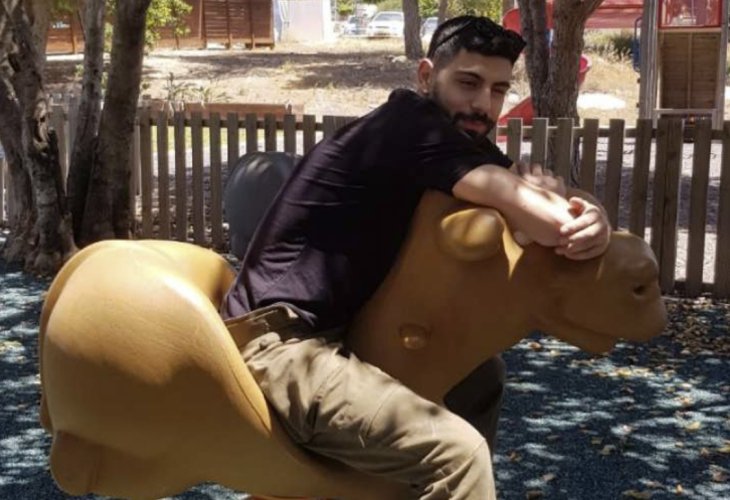 The last picture of Amit Ben Yigal, may his memory be a blessing. (Photo: Baruch Ben Yigal)
The last picture of Amit Ben Yigal, may his memory be a blessing. (Photo: Baruch Ben Yigal)On the last Lag B'Omer, as the embers of the bonfires still whispered, soldier Amit Ben Yigal entered with friends from the Golani Brigade's 'Orev' unit to arrest wanted Palestinians in the village of Ya'bad, west of Jenin. It was a matter of split seconds: a terrorist standing on a nearby building roof threw a massive stone at Amit's head. He was highly injured by the impact, and later, his death was confirmed. May his memory be a blessing.
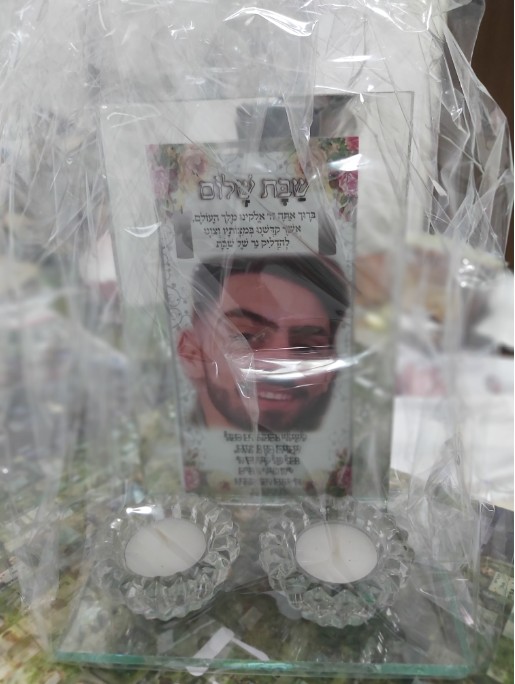
I met Baruch, Amit's father, at his home in Ramat Gan. Baruch is a brave, strong man, yet deeply pained. "He is my only son," he tells me with a pain that is impossible to contain. "I have nothing left," he adds in a whisper and falls silent.
Sitting with Baruch, it was difficult to look into his eyes; the pain flowed between his eyelids. I mostly stayed silent, and Baruch did too. But that was the most painful statement there. It said everything. More correctly, it did not say; it simply screamed. It screamed mourning. Sadness. Loss, and endless pain. This silence frightened me.
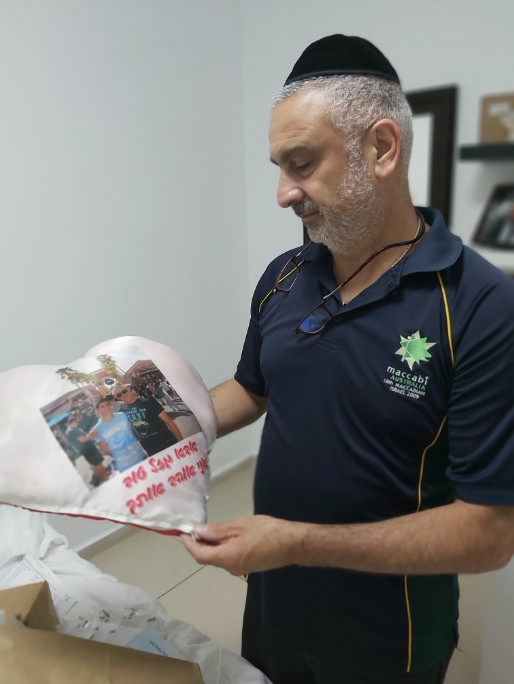 (Photo: Arik Navon)
(Photo: Arik Navon)
Amit was full of values
Baruch tells me: "According to military rules, an only child is not recruited into combat units. Therefore, Amit was not supposed to enlist in Golani, but his love for Israel drove him there."
Where did he draw this love for Israel from?
"Amit was for many years part of a youth movement sponsored by the Ministry of Education, aiming to educate and instill values of love for the land of Israel and Jewish heritage. Already in seventh grade, he participated in all the movement's activities, slowly developing a love for our country. In the summer, when everyone sat in air-conditioned spaces, Amit went on nature trips; they cooked in the field themselves and slept in tents. This could last several weeks. The beauty of this activity was that the group leaders were youth themselves, with teacher supervision, but the guidance was entirely theirs. The outcome of all this was the active volunteer work of the youth in community life, and this was how I educated my Amit."
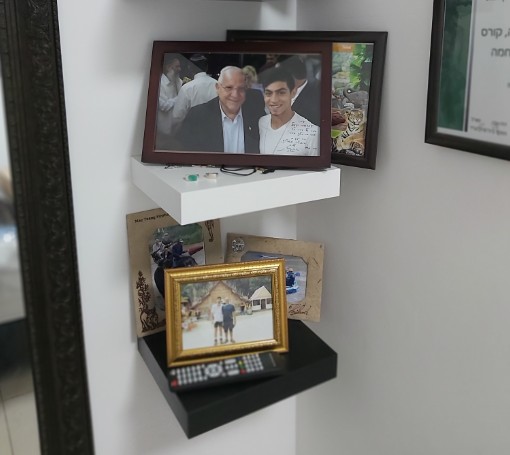
When did you realize you were going to send your only child to combat service?
"On one of the youth organization trips, there was a journey to the concentration camps in Poland. Amit, of course, joined. On Friday, while in Poland, Amit called me and said: 'Dad, I want you to sign allowing me to enlist in a combat unit.' I thought, innocently, that he was just excited from the trip and that it would pass, but when he returned to Israel, I realized he was very determined about joining a combat unit. Honestly, my feelings were mixed. It was difficult to decide; on one hand, I wanted Amit to fulfill his desires, yet on the other, I was afraid as he was my only son."
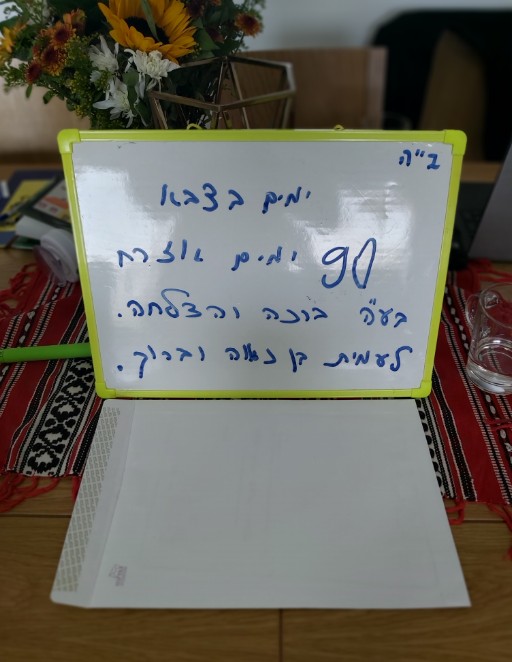 Written a few days before he fell (Photo: Arik Navon)
Written a few days before he fell (Photo: Arik Navon)What tipped the scales?
"I had several discussions with Amit and deeply understood his desire. We agreed I would sign for him. We went together to the Tel HaShomer base, and I signed for him. After signing, no one was happier than him; he was very pleased. He enlisted in the Golani Brigade and from there advanced to the Orev unit. He always aimed to give the best of the best, contributing as much as possible to the people of Israel."
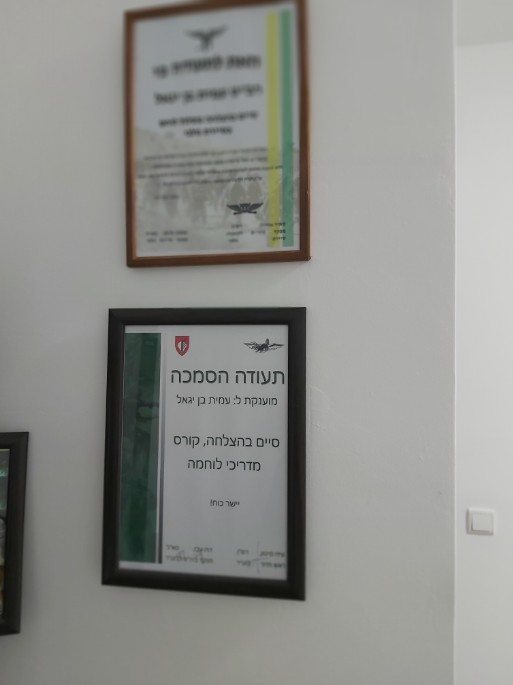
Baruch and his son Amit were bound by ties of love. Throughout the interview, Baruch gives me examples of how strong their relationship was. "On the last Friday before Amit fell, I visited him at the base near Jenin. I know Amit loves cheesecake with crumbs, but I searched all of Afula and couldn't find it. Finally, I found the last one at Rami Levy."
Baruch also tells me about an interesting tradition he had with Amit: "Every time we met, we would wash our hands together in a cup," he reveals, even showing me the cup they used for their joint handwashing.
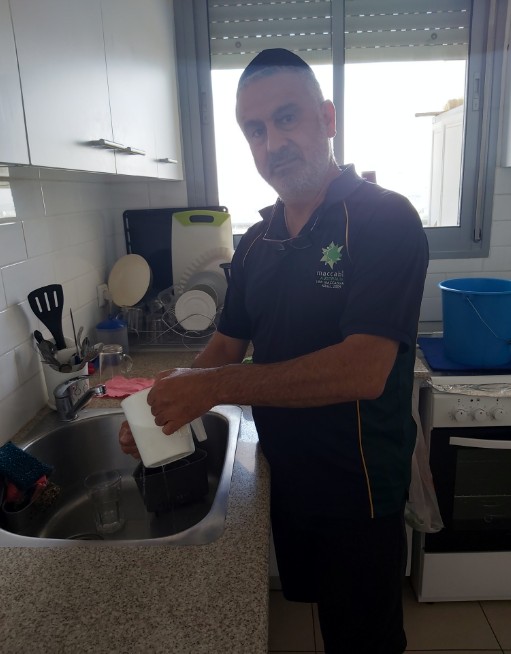 The cup of Baruch and Amit (Photo: Arik Navon)
The cup of Baruch and Amit (Photo: Arik Navon)
In his death, he gave life
Baruch tries not even to articulate his deep mourning in words. Instead, he shows me videos of himself that were published on social networks during the shiva. In one of them, he is seen appearing on a Friday, Friday night, and calling for the people of Israel not to be sad on Shabbat. "Shabbat is a time of joy," emphasizes Baruch in the video, "from my infancy, I grew up in a home where Shabbat was the source of joy. We've had a few days of mourning, but on Shabbat we rose above everything and managed to control our pain."
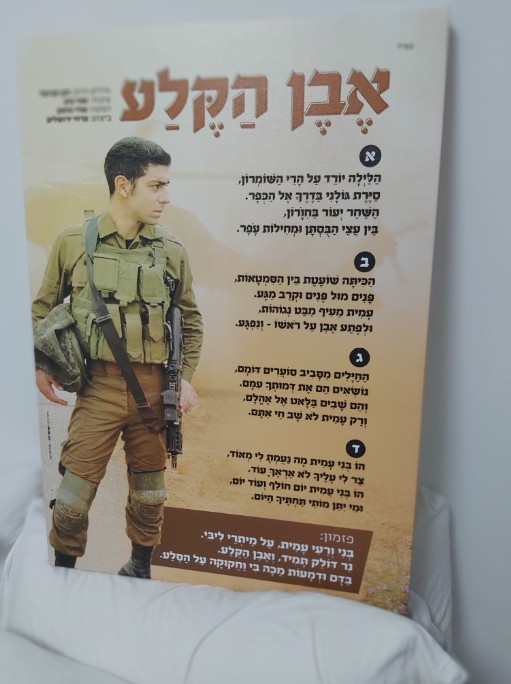
But how can you control such immense pain when you see that Amit is not by your side during Kiddush?
"I'll be honest with you, on Friday night, as Kiddush began, I couldn't hold it together; I started crying along with Nava, his mother. After a few minutes, we collected ourselves thanks to Shabbat, washed my face, and continued Kiddush. There's no doubt it's a huge pain. A child is a child, and no one can measure the pain; there's no such thing, but thank Hashem, our warm family embraces us."
Baruch reveals something interesting: "Every Friday night, we would have Kabbalat Shabbat together, and when Amit was at the base, we would do it over the phone, singing and rejoicing for Shabbat, the queen."
Baruch leads me to Amit's room. On the way, he stops me and shows me a picture of a baby hanging on the wall and tells me an intriguing sentence: "That's my grandson."
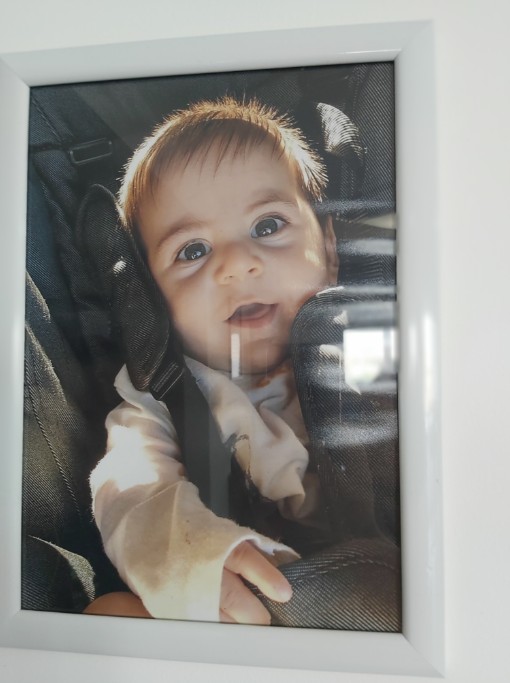 Baruch's grandson (Photo: Arik Navon)
Baruch's grandson (Photo: Arik Navon)Wait, didn't you say Amit, the 21-year-old bachelor, was your only child?
"That's correct," Baruch answers me patiently, "but let me sit you down and tell you how Hashem plans things decades ahead." He pauses for a moment then continues: "On July 14, 1997, the disaster at the Maccabiah bridge happened, where a temporary bridge collapsed, intended to allow athletes to cross to the Maccabiah ceremony on the other side of the creek. Four athletes perished in the disaster. I was there and witnessed the tragedy. I saw a small child fall into the water and immediately jumped in to save him from certain death. That child's name was Yehonatan Goldberg. Years later, Yehonatan got married, but he never forgot me; he invited Amit and me to his wedding abroad. Later, he had a baby and decided to name him 'Baruch,' after me. This Baruch is actually my grandson because if I hadn't dived into the water, there would be no Baruch." It's clear that Baruch is very emotional as he tells me about his grandson. "Do you understand what's happening here? Twenty-three years ago, Hashem knew I would be left without a direct lineage, and He decided to ensure there would be someone in this world named after me, that there would be a Baruch, but not from Amit. So who saved whom?" he asks with a charged voice.
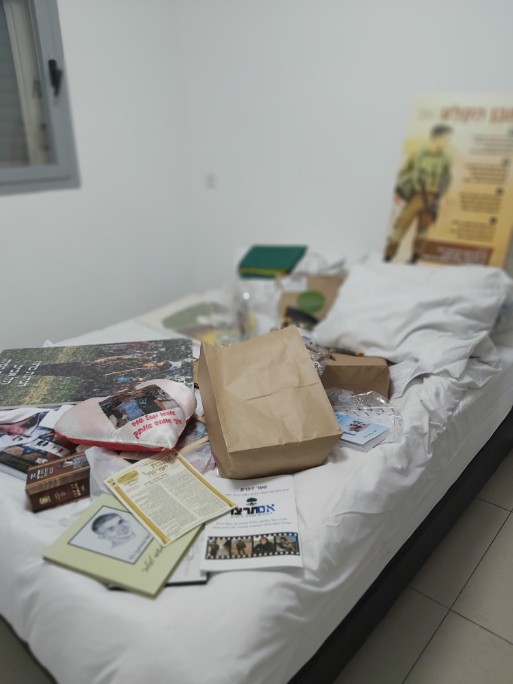 Amit's room (Photo: Arik Navon)
Amit's room (Photo: Arik Navon)After that, we proceed into Amit's room, where it seems as if he slept just last night, and the heart wrenches with pain. "I'll tell you the truth," whispers Baruch to me, "nothing can truly console in such a situation, but I take comfort in the fact that Amit saved the lives of others. Recently, I learned that two days before Passover eve, many civilians' lives were saved due to the arrest of terrorists by Amit and his friends. That was Amit, and even in his fall, the soldiers who were with him told me that because of him, they were unharmed. He detected the stone being thrown and, moments before falling, managed to shout to his friends to take cover, which later turned out to have saved their lives."

